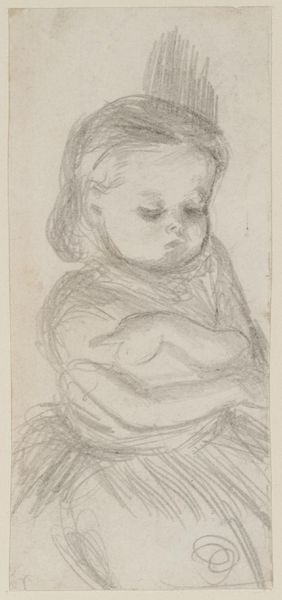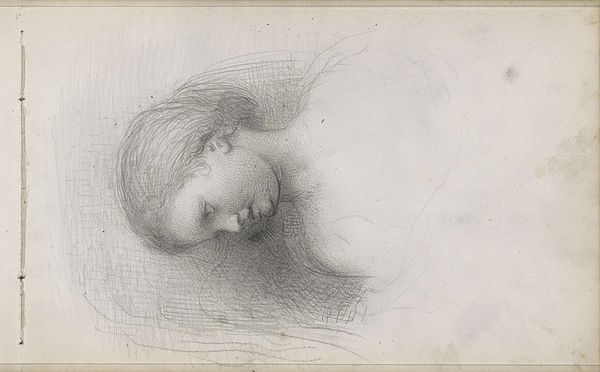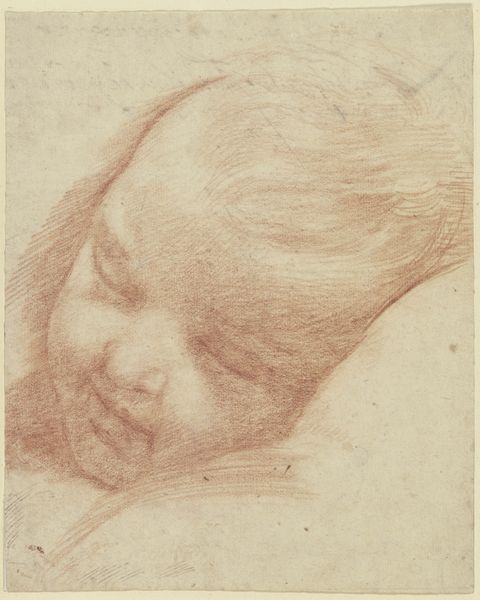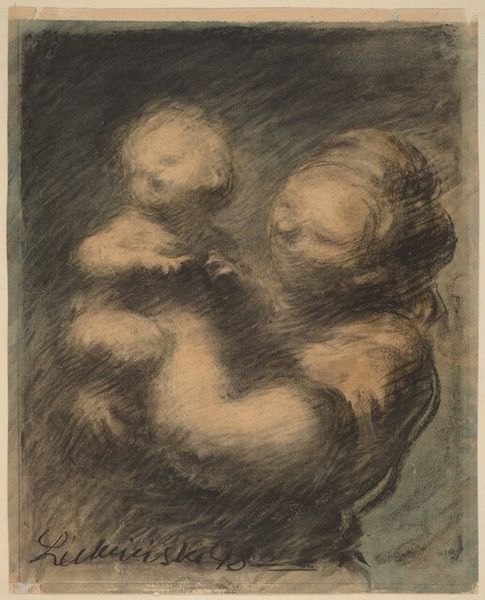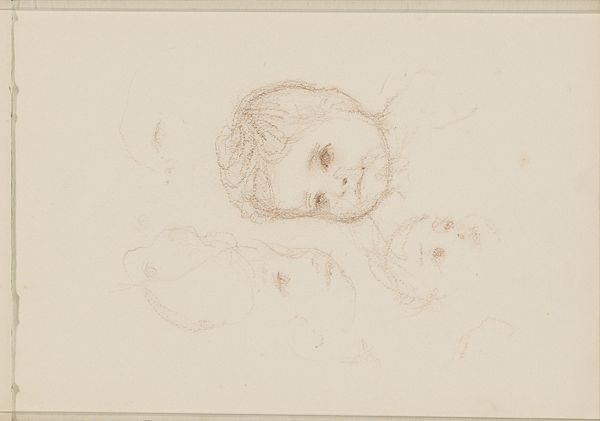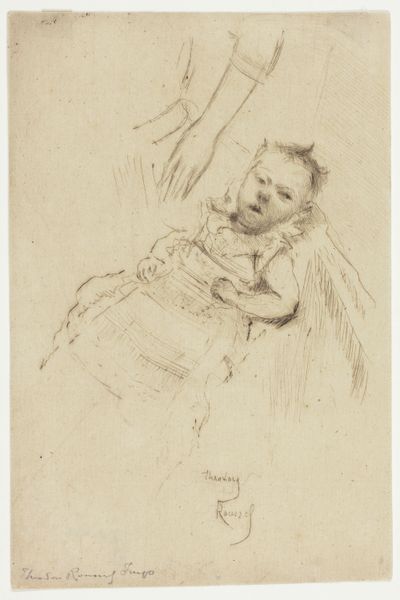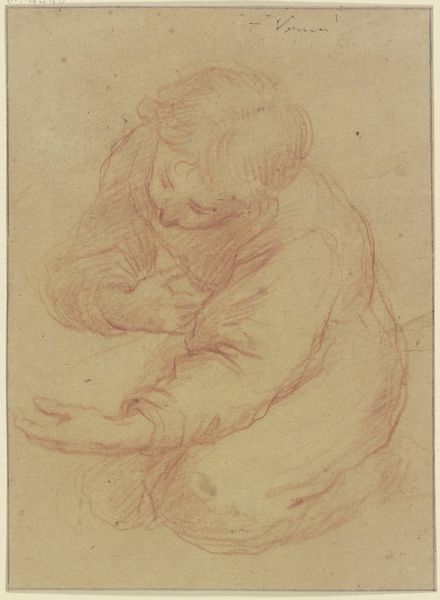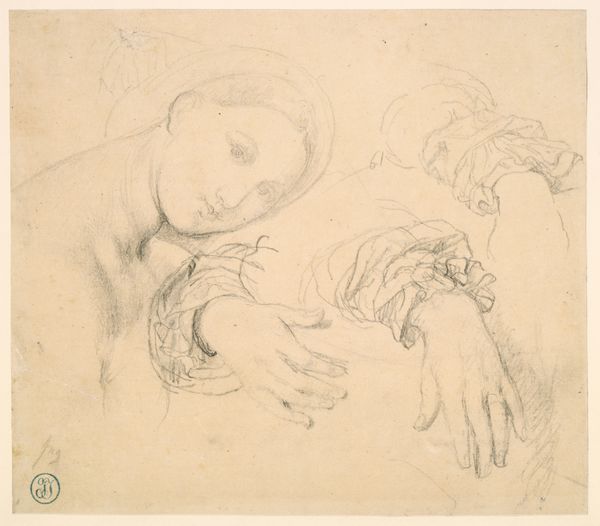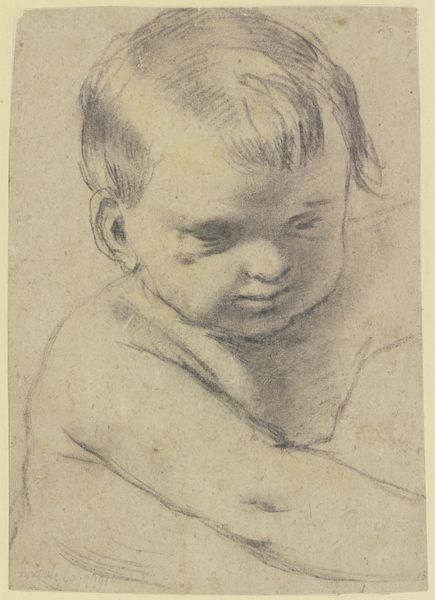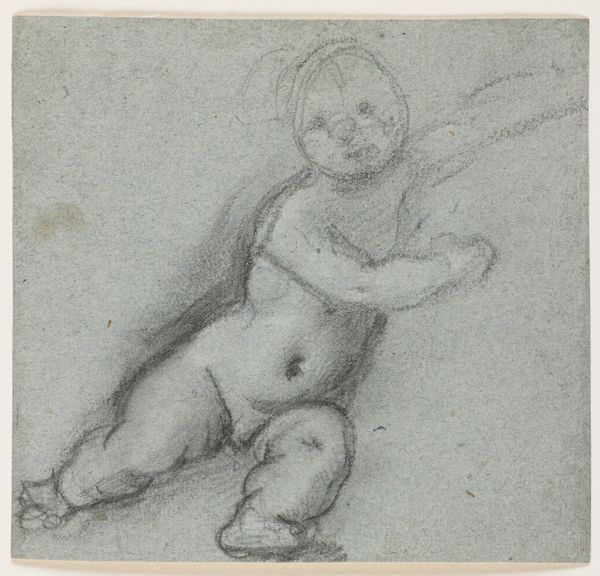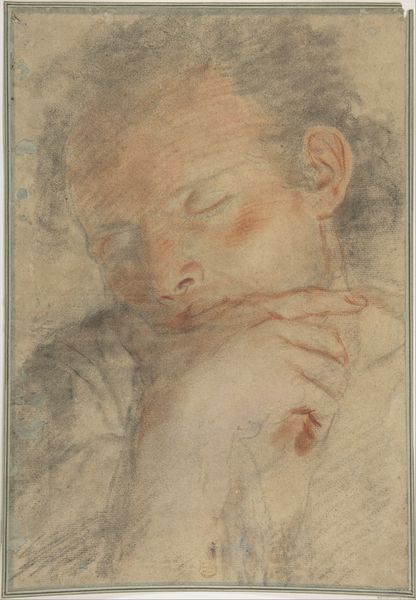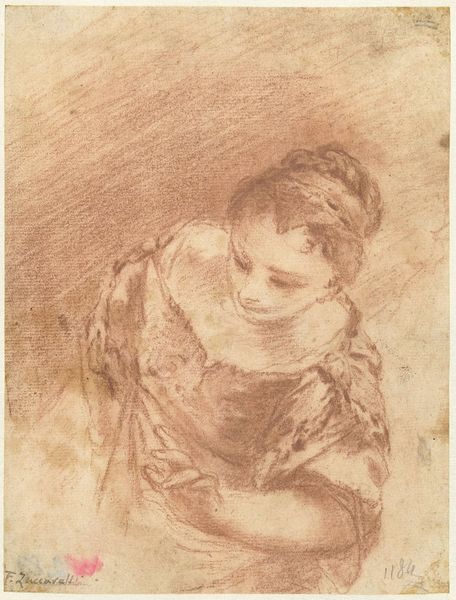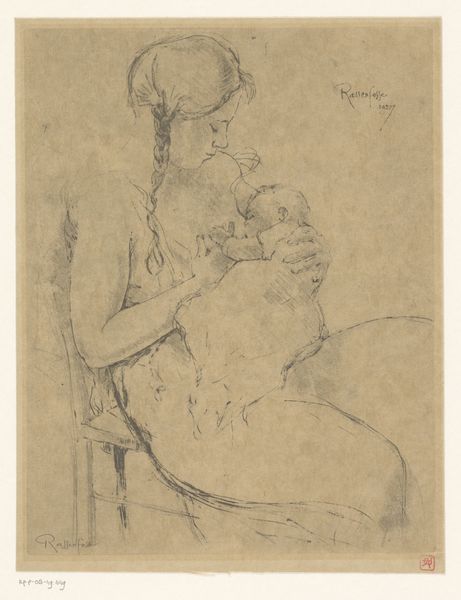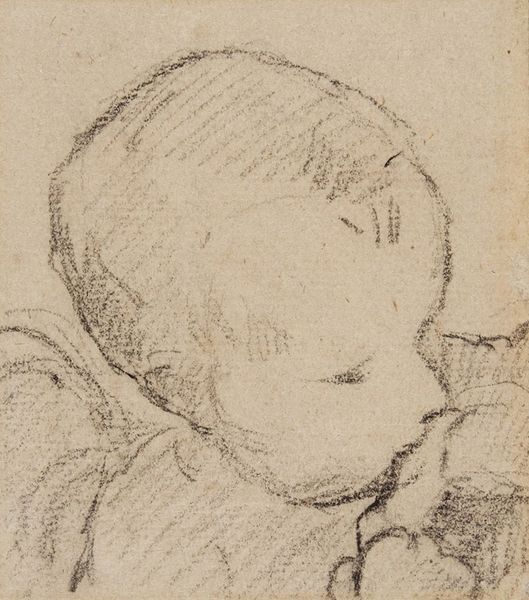
drawing, pencil
#
portrait
#
drawing
#
charcoal drawing
#
figuration
#
pencil drawing
#
pencil
#
portrait drawing
#
realism
Dimensions: height 307 mm, width 240 mm
Copyright: Rijks Museum: Open Domain
Editor: So, this is "Baby, van opzij gezien" by Eugène Carrière, probably made between 1859 and 1906. It's a charcoal and pencil drawing and the image is mostly grey. The rendering feels soft, like a memory. How do you interpret this work? Curator: Carrière’s hazy, almost dreamlike style is incredibly powerful. He wasn’t simply depicting a baby; he was capturing the ephemeral, often invisible bonds of motherhood and early childhood, ideas significantly absent from Realism at this time. Consider the socio-political context: how might a focus on intimate domestic scenes challenge prevailing patriarchal narratives around the turn of the century? Editor: I see what you mean. It’s not just a sentimental image; it's a statement, a quiet revolution focusing on experiences traditionally marginalized in art and society. The sketch-like quality emphasizes fragility, right? Curator: Precisely. Think about how Carrière’s tonalism anticipates later Symbolist explorations of the inner life, too. The vagueness serves not to obscure, but to evoke universal feelings of connection. The maternal is not so often at the front in those more famous paintings, is it? Editor: It is striking, the simplicity he achieves with what appear to be sparse marks, almost gestures. Were the paintings similar in the social statement? Curator: His paintings echo similar themes, prioritizing the emotional weight of interpersonal relationships. His style challenges academic realism in favor of impressionistic tenderness; therefore, it questions societal hierarchies of subject matter and artistic merit, wouldn't you agree? Editor: That’s a perspective I hadn't fully considered before, the way he elevates the everyday and traditionally unseen and also connects forward into new visual styles. Curator: Art has never been divorced from social statements. Reflecting upon it enables a modern, feminist lens of analysis. Editor: Thank you for broadening my understanding of Carrière's social messages embedded in the simplicity!
Comments
No comments
Be the first to comment and join the conversation on the ultimate creative platform.
